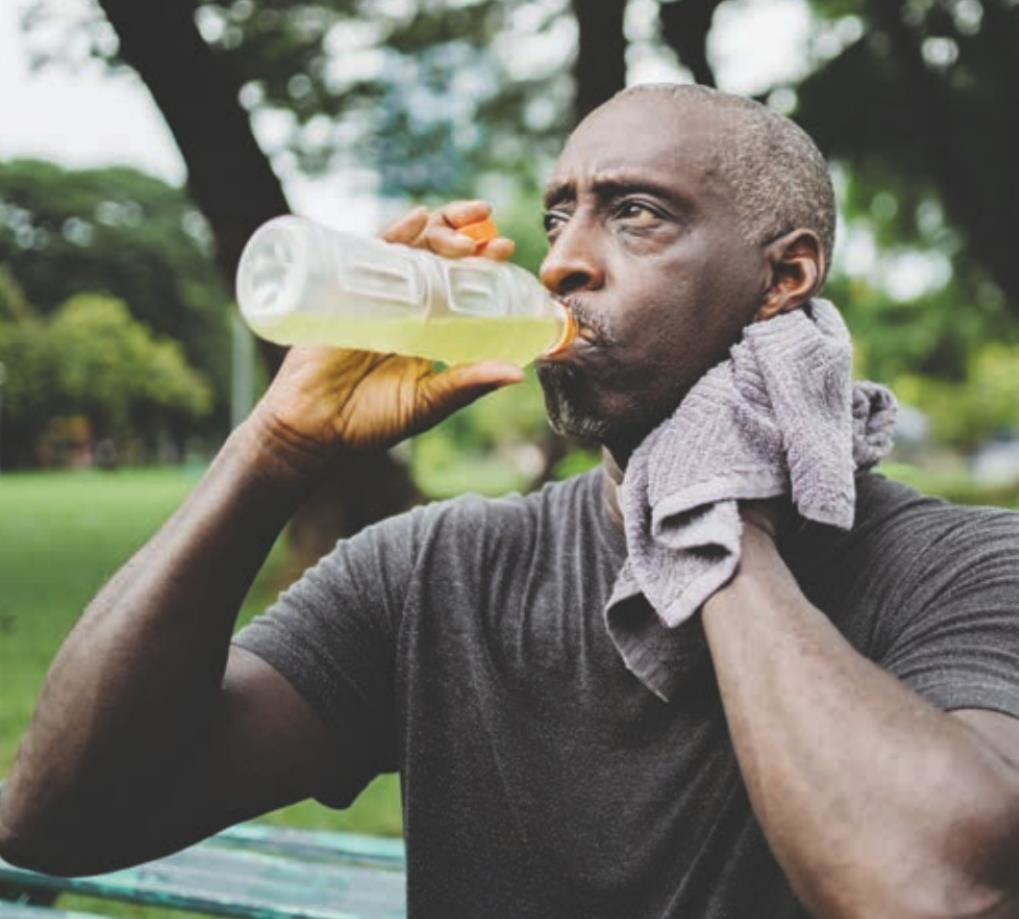Stay well in the heat
It may not have felt like it last week, but the summer heat is coming.
Here are some tips to stay healthy during the summer’s hottest months.
Dehydration
When the body does not have …
This item is available in full to subscribers.
Subscribe to continue reading. Already a subscriber? Sign in
Get 50% of all subscriptions for a limited time. Subscribe today.
Please log in to continueNeed an account?
|
Stay well in the heat
It may not have felt like it last week, but the summer heat is coming.
Here are some tips to stay healthy during the summer’s hottest months.
Dehydration
When the body does not have enough fluids, it becomes dehydrated. In the summer, sweating causes dehydration.
Some signs of dehydration are feeling very thirsty and having muscle cramps. You may also feel dizzy when you go from a sitting position to a standing position.
Severe signs of dehydration are confusion and chest pain which occur due to low blood pressure. The more dehydrated you get, the lower your blood pressure will go.
Treatment
If you have mild dehydration you can fix it by drinking water. If your symptoms do not improve with drinking water or if you have severe symptoms you should seek immediate medical attention by calling 911.
Severe cases may require IV fluid replacement. Dehydration can be deadly!
Prevention
You can prevent dehydration by drinking water throughout the day. Most people do not need
Most people do not need sugary sports drinks to stay hydrated. Avoid alcoholic
beverages when having fun in the sun.
Hyperthermia
Hyperthermia occurs when your body gets overheated.
Symptoms of hyperthermia are similar to dehydration and include dizziness, nausea, headache, fatigue, and muscle cramping.
Some severe symptoms of hyperthermia are having a body temperature of 103 degrees Fahrenheit or higher, red, hot dry skin, having a very fast pulse, confusion, and unconsciousness.
Treatment
If you have symptoms of hyperthermia, get in the air conditioning, stop any exercise and remove any extra clothing if possible.
If your symptoms don’t improve or if you have severe symptoms call 911. Hyperthermia can be deadly.
What will the hospital do? To cool you down safely and quickly, hospitals may submerge you in an ice bath, use cooling blankets or pour cold water over you. Another method is applying ice packs to your armpits, neck, and groin, which are areas that have large blood vessels.
If you lose consciousness due to being over-heated you may not be able to breathe without help. An ER staff can help manage your airway and keep you breathing.
The hospital staff will be constantly checking your body temperature, to make sure your body temperature is getting cooler but not too cold.
Too much ice bath can cause hypothermia, low body temperature which is also dangerous.
Lauren Svensen is owner and family nurse practitioner at Spirit Primary Care at 7001 St. Andrews Rd in Columbia. Reach her at lauren@spiritprimary.com .
Other items that may interest you







Comments
No comments on this item Please log in to comment by clicking here